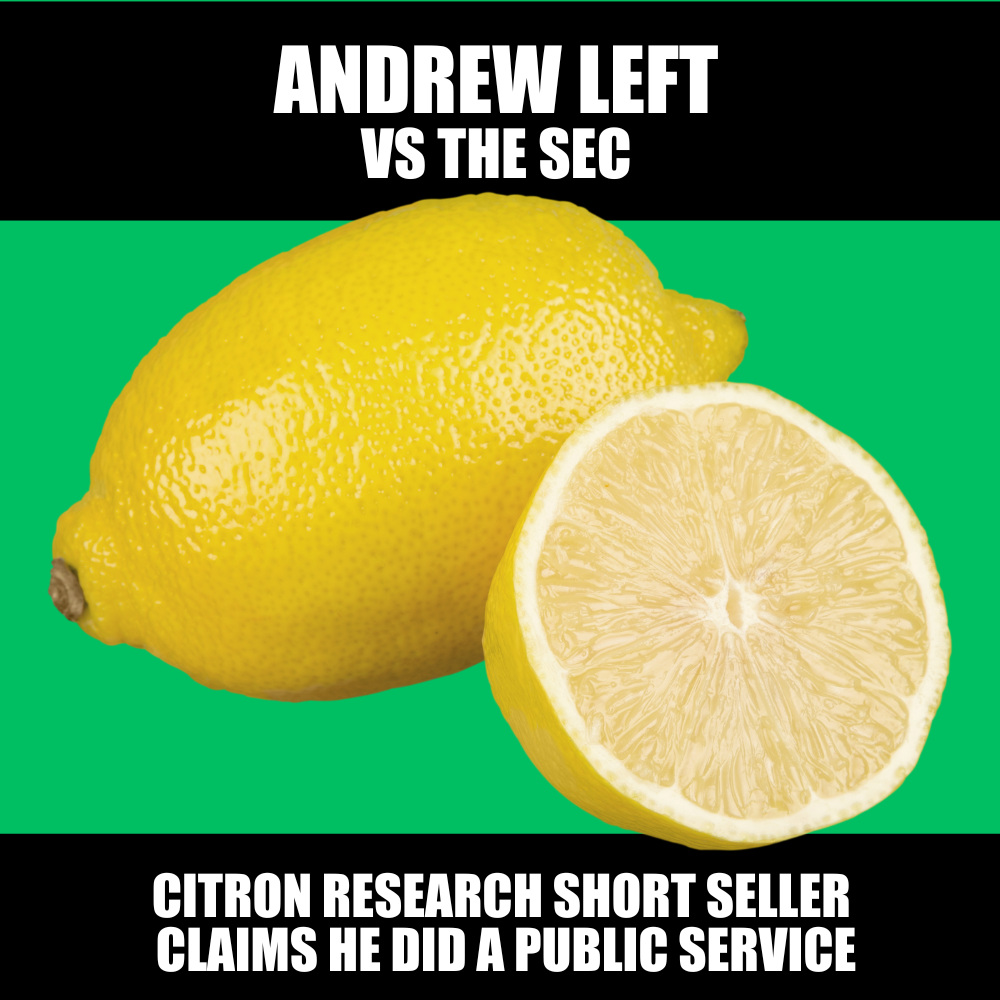Andrew Left, the infamous short-seller behind Citron Research, is asking a California judge to throw out criminal charges accusing him of manipulating U.S. and Canadian stocks for personal profit. In a motion filed July 2, Left argues that his conduct—issuing negative reports on overhyped companies and shorting their stock—has long been seen as legal and beneficial to the integrity of financial markets.
Prosecutors claim otherwise. They allege Left used his Citron platform to pump out incendiary reports timed to move markets in his favor, generating $20 million in profits. In some cases, he allegedly traded in direct contradiction to his public calls, capitalizing on market reactions from unsuspecting investors.
Left denies any wrongdoing. He says his work uncovered serious corporate frauds that regulators later confirmed—adding that he’s being selectively prosecuted because Wall Street power players pressured authorities to silence critics like him.
Among the examples Left cites is his 2018 takedown of Namaste Technologies Inc., a cannabis stock on the TSX Venture Exchange that we eviscerated several times. He predicted the company was heading to zero, citing internal mismanagement. The fallout from his report led to the firing of then-CEO Sean Dollinger. Despite that result, Left says, he’s being punished for exposing the truth.
Namaste wasn’t the only cannabis play in his crosshairs. The SEC also highlighted his campaign against Cronos Group, another TSX-V cannabis stock. In messages to associates, Left wrote they could “DESTROY CRON” and make $2 per share on the short. He then tweeted that Cronos was “ALL HYPE with possible securities fraud,” and reportedly made $500,000 as the stock dropped.
The SEC paints a pattern: Left would publicly bash a stock, prompting retail traders to sell, while he privately prepared to buy at the bottom—or vice versa. His public face, often seen on CNBC and Bloomberg, gave the appearance of a seasoned fund manager offering tough love to the market. Behind the scenes, regulators say it was just cold strategy.
Left argues that if bullish analysts who hype failing companies don’t get charged when investors lose money, then targeting him is a double standard. The case hasn’t gone to trial yet, but with Left claiming he protected markets—not defrauded them—it’s setting up as a battle over what short selling really means in the era of meme stocks and media moves.


Leave a Reply